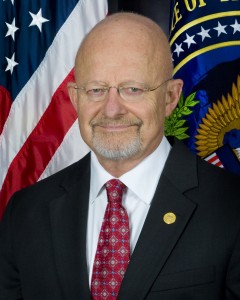The “McCain Committee” Would Be Full of NSA Defenders
Imagine a McCain Committee as the inheritor of the tradition of Frank Church and Otis Pike.
(Yes, I did that to make bmaz’ head explode.)
That seems to be what John McCain intends with his resolution calling for a Committee to Investigate the Dragnet. (h/t Steven Aftergood)
Only, McCain proposes to investigate not just whether NSA has engaged in things it was not authorized to do. But also to investigate Snowden’s leaks themselves and the potential role of contractors in making leaks more likely.
All that said, I might be excited about McCain’s proposal to review the dragnet, as described:
(3) The nature and scope of National Security Agency intelligence-collection programs, operations, and activities, including intelligence-collection programs affecting Americans, that were the subject matter of the unauthorized disclosure, including–
(A) the extent of domestic surveillance authorized by law;
(B) the legal authority that served as the basis for the National Security Agency intelligence-collection programs, operations, and activities that are the subject matter of those disclosures;
(C) the extent to which such programs, operations, and activities that were the subject matter of such unauthorized disclosures may have gone beyond what was authorized by law or permitted under the Constitution of the United States;
(D) the extent and sufficiency of oversight of such programs, operations, and activities by Congress and the Executive Branch; and
(E) the need for greater transparency and more effective congressional oversight of intelligence community activities.
There’s just one problem with McCain’s proposal.
Here’s the list of the people who would be on the Committee (he provides titles, I’m providing names):
- Diane Feinstein
- Saxby Chambliss
- Carl Levin
- Jim Inhofe
- Tom Carper
- Tom Coburn
- Robert Menendez
- Bob Corker
- Pat Leahy
- Chuck Grassley
- Jello Jay Rockefeller
- John Thune
- A Harry Reid pick
- A Mitch McConnell pick
There are a number of very big NSA defenders on this list — in addition to DiFi and Saxby, both Jello Jay and Coburn are Intel Committee members who have never questioned the dragnet (indeed, Coburn has called for getting rid of the controls on the phone dragnet!). Chuck Grassley, too, has generally been supportive of the dragnet in SJC hearings on the subject. Most of the rest are simply not the caliber of people who might critically assess the dragnet much less show real interest in Americans’ privacy. Only Carl Levin and Pat Leahy, alone among the 12 named members, have been explicitly skeptical of the dragnet at all.
McCain proposes a Select Committee to investigate the dragnet. And he proposes to fill it with people who are really happy with the dragnet as it currently exists.
Update: Just to give a sense of how terrible this make-up for a Select Committee is, compare it with the bipartisan list of 26 Senators who asked James Clapper for more information on other uses of Section 215 last June. Just one Senator from that list — Pat Leahy — would be on McCain’s committee.
Update: Haha! Via Matt Sledge, DiFi shot McCain’s idea down pretty quickly.

